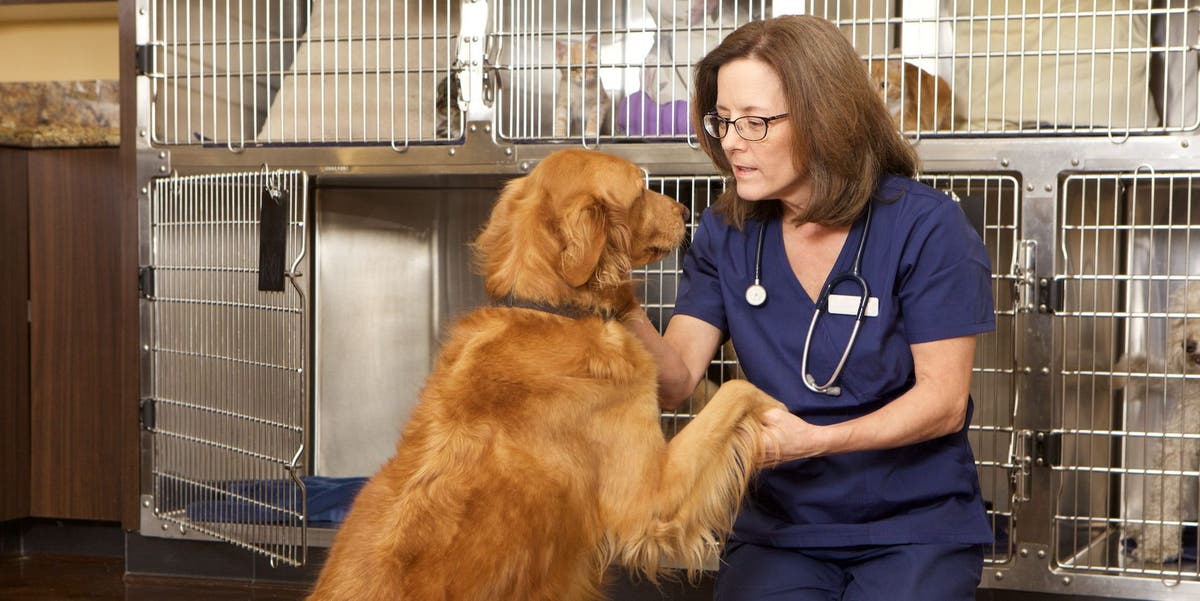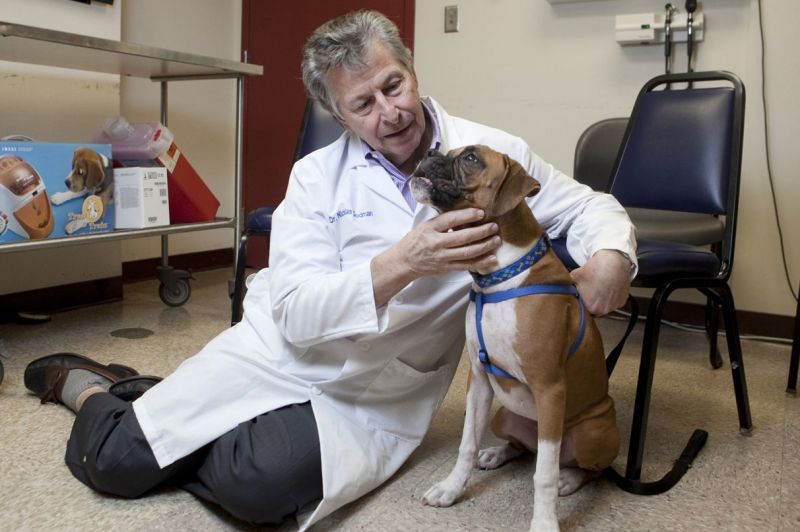Comprehending the Duty of a Veterinary Behaviourist in Pet Training and Wellness
The function of a vet behaviourist is important in addressing the detailed relationship between animals and their owners. They integrate vet medication with insights from pet habits scientific research to take on problems like aggression and anxiousness. Unlike traditional fitness instructors, their method concentrates on the underlying causes of these actions. This nuanced viewpoint questions about the efficiency of conventional training approaches and exactly how a much deeper understanding can transform pet health. What techniques do they use to attain these results?
What Is a Veterinary Behaviourist?
A veterinary behaviourist is a customized expert who concentrates on understanding and resolving the behavioral problems of pets, especially family pets. Their proficiency incorporates veterinary medication and pet behavior scientific research, enabling them to identify and deal with a vast array of behavioral issues - cat behaviourist near me. These experts commonly hold postgraduate degrees, such as a Master's or PhD in animal behavior, and are accredited by appropriate organizations, ensuring they possess a deep understanding of pet psychology
Veterinary behaviourists evaluate pets through thorough observation and analysis, considering variables such as genes, setting, and training background. They create customized therapy plans, which might consist of desensitization strategies, favorable support methods, and environmental changes. Cooperation with animal owners is vital, as they supply assistance and assistance throughout the training procedure. Eventually, the goal of a veterinary behaviourist is to boost the health of the pet while promoting a harmonious connection in between family pets and their owners.
The Importance of Comprehending Animal Behavior
Recognizing pet habits is important for both pet dog proprietors and specialists in the field of pet treatment, as it lays the foundation for effective interaction and training. Recognizing how pets view their environment and react to stimulations allows caregivers to develop a much more harmonious living circumstance. Understanding right into behavior hints, such as body language and vocalizations, cultivates stronger bonds in between pet dogs and their proprietors. By appreciating the all-natural instincts and requirements of various varieties, individuals can customize their training approaches to fit these elements, advertising better knowing and participation. Furthermore, a strong grasp of behavior scientific research help in determining stress factors and potential triggers, enabling for aggressive interventions. On the whole, comprehending pet actions not only improves the health of animals however also enhances the experiences of those who care for them, eventually resulting in much healthier, better relationships.
Typical Behavioral Issues Dealt With by Vet Behaviourists
Vet behaviourists frequently deal with common behavior concerns in pets, including aggression and anxiety reactions. They likewise concentrate on anxiousness and tension monitoring, which can greatly affect a pet's well-being. Recognizing these concerns is crucial for creating efficient training and intervention techniques.
Hostility and Concern Reactions
While numerous animal owners may see hostility and concern actions as straightforward behavioral problems, these intricate responses usually originate from underlying anxiety or past injury. Vet behaviourists play a crucial duty in identifying the origin of these actions, which can materialize in numerous forms, consisting of growling, attacking, or extreme anxiety of specific circumstances. Understanding these triggers is essential for developing effective training strategies customized to every family pet's special scenarios. Behaviourists employ approaches such as desensitization and counter-conditioning to assist family pets handle their concerns and aggression. In addition, they inform family pet owners concerning ideal management techniques, emphasizing the value of patience and uniformity. Dealing with aggression and fear actions not just enhances the animal's lifestyle however also strengthens the bond in between animal and proprietor.
Anxiety and Tension Management
Anxiety and tension prevail concerns that numerous animals encounter, usually resulting from adjustments in their setting, lack of socializing, or previous adverse experiences. Veterinary behaviourists play an essential role in recognizing the underlying reasons for these issues. They utilize different strategies, including behavioral adjustment, desensitization, and counter-conditioning, to aid family pets manage stress and anxiety. Additionally, they may suggest ecological changes, such as creating safe spaces or giving enrichment activities that advertise leisure. Cooperation with animal proprietors is crucial, as behaviourists guide them in understanding their animal's signals and executing effective coping strategies. By attending to stress and anxiety and anxiety, vet behaviourists add considerably to enhancing the general well-being and lifestyle for animals and their families.
How Veterinary Behaviourists Differ From Conventional Fitness Instructors
Veterinary behaviourists vary from conventional fitness instructors mainly in their educational backgrounds and training. While typical trainers typically concentrate on obedience and basic commands, vet behaviourists stress understanding and addressing underlying behavior concerns, integrating medical considerations into their approach. This distinctive focus permits them to offer a more thorough therapy for animals with intricate behavioral obstacles.
Education And Learning and Training Differences
Understanding the difference between veterinary behaviourists and conventional fitness instructors is crucial for family pet owners seeking reliable training options. Veterinary behaviourists possess innovative levels in veterinary medication, frequently adhered to by specialized training in animal behaviour. This education and learning furnishes them to resolve complicated behavioral concerns that may come from clinical conditions or emotional aspects. On the other hand, conventional trainers typically have certifications from training programs that focus on obedience and fundamental commands without delving right into the underlying psychological or clinical facets. While both professionals intend to improve family pet practices, veterinary behaviourists can identify and deal with behavioral troubles holistically, integrating clinical knowledge into training strategies. This vital distinction highlights the significance of picking the appropriate professional based on the animal's details requirements.
Concentrate On Behavioral Issues
Attending to behavioral problems requires a nuanced method that differentiates veterinary behaviourists from standard fitness instructors. While conventional fitness instructors usually concentrate on obedience and fundamental commands, vet behaviourists check out deeper right into the underlying Full Article root causes of troublesome practices. They use an extensive understanding of pet psychology and therapy strategies, which are rooted in scientific research study. This experience allows them to determine problems originating from anxiousness, anxiety, or aggressiveness, instead of merely dealing with surface-level symptoms. On top of that, vet behaviourists evaluate the family pet's overall well-being, thinking about environmental elements and the animal's history. By incorporating medical expertise with behavioural strategies, they give customized services that advertise long-term behavioral change, ensuring both the family pet's and owner's high quality of life are noticeably improved.
Clinical Considerations Consisted Of
While conventional fitness instructors may forget underlying medical problems, vet behaviourists prioritize a comprehensive assessment of a family pet's health as a foundational action in resolving behavioural troubles. This method permits them to recognize prospective clinical conditions that may add to unfavorable behaviours, such as stress and anxiety, discomfort, or neurological disorders. By integrating medical evaluations into their method, vet behaviourists can collaborate with vets to assure a holistic understanding of the animal's well-being. Additionally, they can suggest ideal treatments or adjustments to training plans based on medical searchings for. This considerable perspective identifies veterinary behaviourists from conventional fitness instructors, as they attend to both behavioral and health-related elements, inevitably bring about extra effective and sustainable results for family pets and their owners.

The Process of Dealing With a Veterinary Behaviourist
Working together with a veterinary behaviourist entails a methodical approach to resolving a family pet's behavioral problems. The procedure starts with a comprehensive analysis, where the behaviourist gathers comprehensive information regarding the pet dog's history, atmosphere, and certain behaviors that are troublesome. This typically includes surveys, interviews with the pet dog proprietor, and in some cases observations of the family pet in its atmosphere.
Adhering to the assessment, the vet behaviourist creates a tailored treatment strategy that might consist of behavior adjustment techniques, training techniques, and, if needed, referrals for clinical examinations. dog behaviourist near me. The strategy is developed to be functional and possible, guaranteeing that it fits perfectly into the animal owner's way of living
Subsequent follow-up sessions are necessary to monitor development, change strategies, and provide assistance. This collaborative initiative not only intends to customize unwanted habits but likewise to enhance the total check here wellness of the pet, making certain an unified connection in between the family pet and its proprietor.
Enhancing Your Pet's Lifestyle With Behavioral Assistance
Enhancing a family pet's quality of life with behavioral assistance is crucial for fostering a healthy and meeting partnership in between pets and their owners (canine behaviourist near me). Veterinary behaviourists play an essential role in determining and resolving behavioral problems that might impede a pet's wellness. With customized strategies, they help ease anxiousness, concern, and aggression, eventually advertising a much more well balanced and delighted my response pet dog
Behavioral support incorporates various techniques, including favorable support, environmental enrichment, and socialization. By implementing these methods, proprietors can create a caring atmosphere that encourages positive habits. This not only enhances the pet's psychological health and wellness however also enhances the bond between pet and proprietor.
Furthermore, regular consultations with a vet behaviourist assurance that any type of arising behavioral problems are without delay dealt with, stopping acceleration. Generally, purchasing behavior assistance is an aggressive technique that substantially enhances an animal's life, resulting in improved physical and psychological health and wellness end results.
Regularly Asked Questions
What Credentials Do Vet Behaviourists Have?
Vet behaviourists normally hold a veterinary level, complied with by specialized training in pet actions. Several additionally have qualifications from identified organizations, demonstrating their experience in resolving animal behavior concerns and advertising general pet health.
Can Vet Behaviourists Suggest Medication for Pet Dogs?


Vet behaviourists, possessing veterinary levels and specialized training, can without a doubt prescribe drug for family pets. This ability enables them to resolve underlying behavior issues successfully, usually incorporating medicinal treatment with behavioral alteration techniques for best outcomes.
For How Long Does Behavioral Treatment Typically Take?
Behavior modification period differs significantly, generally ranging from a few weeks to numerous months. Aspects influencing this timeline consist of the family pet's details concerns, consistency of training, and the owner's interaction while doing so.
Are Remote Examinations Available With Veterinary Behaviourists?

Just how much Does a Vet Behaviourist Examination Price?
The cost of a veterinary behaviourist assessment generally varies from $100 to $300, relying on aspects such as area, experience, and session length. Extra costs might get follow-up appointments or specialized solutions.